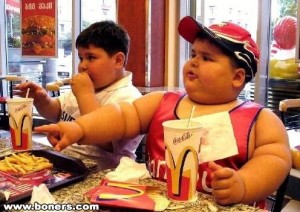Hi All,
The end of the year is actually here. How do you want to finish off your 2008? On a high note or a low note? With love in your heart or with fear?
With all that has happened over the last few months politically, socially, economically and spiritually, is this going to end up as the BEST YEAR OF YOUR LIFE? If not, why? Even if your finances are worse, have you grown as a person, as a spouse, as a parent, as a friend? Even if you have lost your job, do you see the things in your life that you feel grateful for? Even if you have experienced great loss, are you able to smile, see the beauty in the world and be grateful for what your have? Even if you have experienced creased success, is there more you can do to make things even better?
If not, is there something you can do this month to turn things around and finish out this year strong making it THE BEST YEAR OF YOUR LIFE? What can you do to start 2009 on a positive note? Can you perform a charitable act? Can you perform random acts of kindness? Can you smile at people as you pass them by? Can you truly share your love with your family and friends? Can you give until it feels good?
I hope this holiday season you can experience the true holiday spirit of Love, Joy, Happiness and Giving. Remember that giving does not mean spending lots of money; it means giving from the heart and improving the life experience of someone else.
Change a moment and it will change a day. Change a day and it will change a year. Change a year and it will change a life. Every time we put positive energy into action we not only change our lives for the better but help positively impact the lives of everyone we come into contact with.
– Dr. Gregg Stern
I hope you enjoy the following bonus article. If you know someone this may help, please share it. This smallest act of sharing can have profound effects for generations to come.
Kids mimic parents’ diets from an early age
Mon Nov 3, 2008
NEW YORK (Reuters Health) – Parents who want their preschoolers to eat their  vegetables may need to take a hard look at their own eating habits, new research suggests.
vegetables may need to take a hard look at their own eating habits, new research suggests.
In a study of 120 young children who were allowed to “buy” food from a play grocery store,
researchers found that even 2-year-olds tended to mirror their parents’ usual food choices.
Children who stocked up on sweets, sugary drinks and salty snacks generally had parents whose typical grocery list featured such items. Similarly, children with the healthiest shopping habits seemed to be following their parents’ lead as well.
The findings, reported in the Archives of Pediatrics & Adolescent Medicine, suggest that even very young children do not indiscriminately reach for candy when given the chance. Instead, they seem to already be forming food preferences — potentially lasting ones — based on their parents’ shopping carts.
“The data suggest that children begin to assimilate and mimic their parents’ food choices at a very young age, even before they are able to fully appreciate the implications of these choices,” write the researchers, led by Dr. Lisa A. Sutherland of Dartmouth Medical School in Lebanon, New Hampshire.
That, the researchers say, means that the grocery store can be like a classroom, where parents teach their children that foods like fruits, vegetables and whole grains take priority over snacks and desserts.
For the study, Sutherland’s team had 120 children aged 2 to 6 years old each take a turn in a play grocery store. The children were told they could buy anything they wanted out of 133 items: “healthier” foods included fruits, vegetables, whole-grain cereals, bread and milk; “less healthy” items included desserts, candy, potato chips, soda and sugary cereals.
Parents completed questionnaires on how often they bought specific foods and beverages. All said they brought their children with them on grocery store trips.
Most of the children, the researchers found, bought some sugary, salty treats; on average, their carts were filled with equal parts healthy and unhealthy items.
However, 35 children bought significantly more healthy fare than junk food. In general, the study found, the health-consciousness of a child’s shopping cart mirrored that of her parents’ grocery list.
“Nutrition interventions for children most often begin with school-aged children,” Sutherland and her colleagues write. “This study suggests that preschool children are already forming food preferences and are attentive to food choices made by their parents.”
Giving preschoolers a taste for healthy foods, the researchers add, could ultimately make it easier for them to keep up a lifetime of smart eating.
SOURCE:
Archives of Pediatrics & Adolescent Medicine, November 2008.